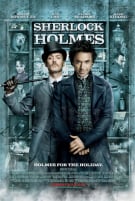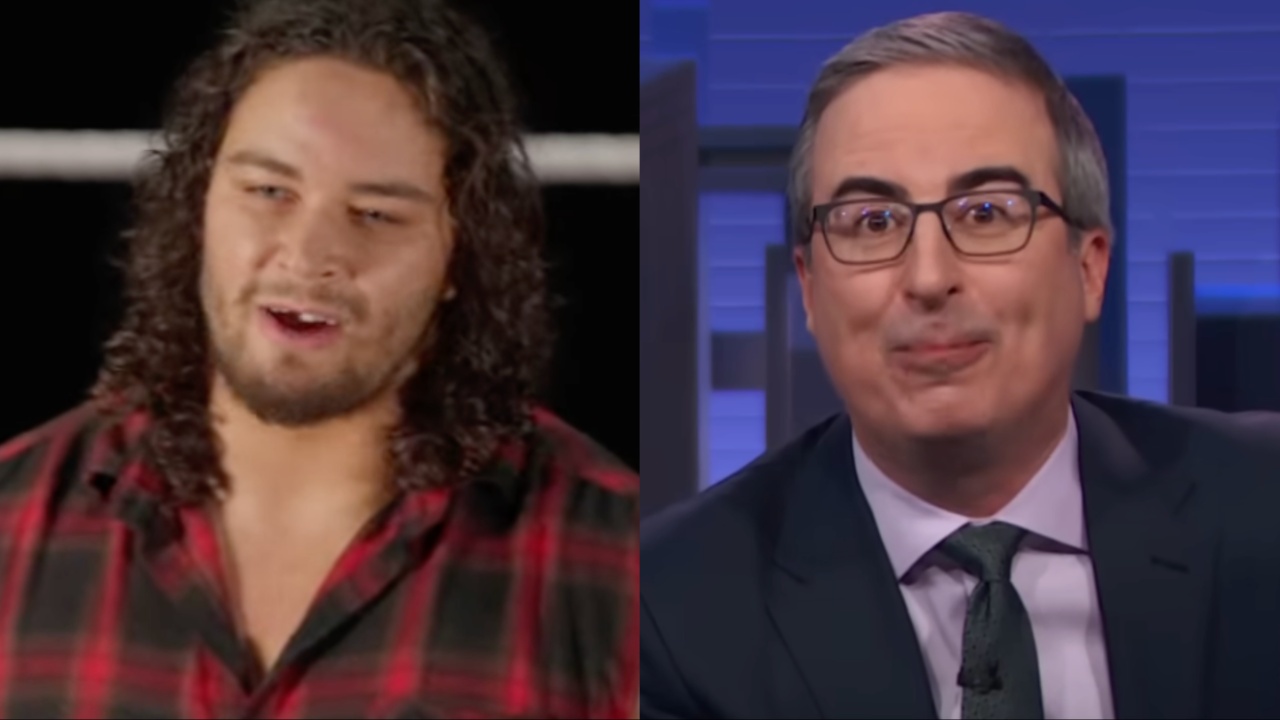It's become a central truth of American filmmaking that audiences will watch Robert Downey Jr. doing pretty much anything, and when he's having as much fun as he is as the magnetic center of Sherlock Holmes, there's no choice but to be swept along for the ride. Effectively remaking the original Pirates of the Caribbean as a Victorian London caper, Guy Ritchie combines his kinetic direction with the limitless charms of Downey Jr and Jude Law to come up with terrific entertainment that's equal parts brains and brawn, American recklessness and English manners. In short, it's a blast.
The movie is structured essentially as an adventure romance, as Holmes (Downey Jr.) and Watson (Law) try to break up and, through crooked schemes and explosions and near escapes, realize by the end how much they mean to one another after all. At the beginning Watson is preparing to move out of 221b Baker Street, with plans to propose to pretty and proper Mary (Kelly Reilly) and leave the detective business entirely. Holmes, bored and hilariously jealous, attempts to sabotage Watson's engagement and also draw him back into the game, now that an old closed case has suddenly reopened.
Months earlier Watson and Holmes put away Lord Blackwood (Mark Strong), an aristocrat who murdered five people via some kind of dark arts ceremony. Watson himself supervised Blackwood's hanging, but when he appears to have risen from the dead, everyone from the police to a secret cabal wants to know how he did it. Blackwood and his legion of followers have plans for world domination via drinking potions and other hocus pocus, while Holmes goes about finding Blackwood in the only way he knows how-- using his "not inconsiderable knowledge" and foolproof logic. Meanwhile, Holmes's old flame Irene Adler (Rachel McAdams) is back in town, a criminal beauty working secretly for a shadowy boss with a penchant for fancy weaponry. Adler pops up from time to time to help Watson and Holmes in their investigations, and it's clear to the audience that she'll throw a wrench in things even when Holmes hasn't quite gotten there.
Dipping into chemistry and pentagrams and the earliest forms of electricity, the plot is all over the place, and I'm not entirely certain I understand how it all fit together in the end. But the story really just provides a vehicle for the action and the fantastic character interactions, one of which delivers slightly better than the other. While some action setpieces, like a fight at a shipyard and the final race against the clock, are brilliantly structured, the fight choreography gets chopped up into bits, with Ritchie cutting too quickly for the audience to see a punch or a kick all the way through. The editing often works directly at odds with Downey Jr.'s physicality, as he throws in a funny movement or a particularly sweet punch, only to see it lost entirely to needless slo-mo and quick cuts.
Then again, all that Ritchie noodling works great in Holmes's investigation scenes, allowing him visual flashbacks to all the clues that led him to his conclusions and avoiding the dreadful slowness that comes with most mystery-solving monologues. Miraculously the audience is right there with Holmes even during his most out-there epiphanies, and the equally out-there camerawork pays off well in making this period piece feel unstuffy, but also not gimmicky. He's helped immensely by Hans Zimmer's loose, wily score, one of the best action movie scores I've heard in years.
When Ritchie holds the camera relatively still and lets all of the actors play off each other, there's nothing better. Eddie Marsan is hilarious as the frustrated Inspector Lestrade, and Strong's Blackwood makes for a great intellectual equal against Holmes, but when Downey Jr. and Law are together the screen lights up so brightly it could catch fire. Bantering like Cary Grant and Rosalind Russell or trading off punches in a fight, the two actors have rarely looked so self-assured or in synch with an onscreen partner. Watson and Holmes squabble over clothes and the dog, tend one another's wounds and protect one another from injury, and generally make the best action-adventure duo since Indy and Marion. The one downside to all this energy between the boys is that Adler is sold short, flitting in and out of the plot seemingly at random, and rarely getting much out of Sherlock beyond a stolen kiss or two. McAdams is excellent and fiery in the role, but it seems much of her part was trimmed in order to make more room for Downey Jr. and Law. But oh, what a consolation prize that is.
As the movie winds down it begins to brazenly set up a sequel, and given the manifold adventures of Holmes and Watson that Arthur Conan Doyle wrote, it's hard to imagine two heroes better suited to a modern franchise. There are surely simpler Holmes stories to tell that won't get so bogged down in plot, and maybe there's a way to let the brains beat out the brawn next time, at least if the fights are going to stay so incomprehensible. But keep this iteration of Watson and Holmes together, and we're likely to follow them anywhere.
Staff Writer at CinemaBlend












